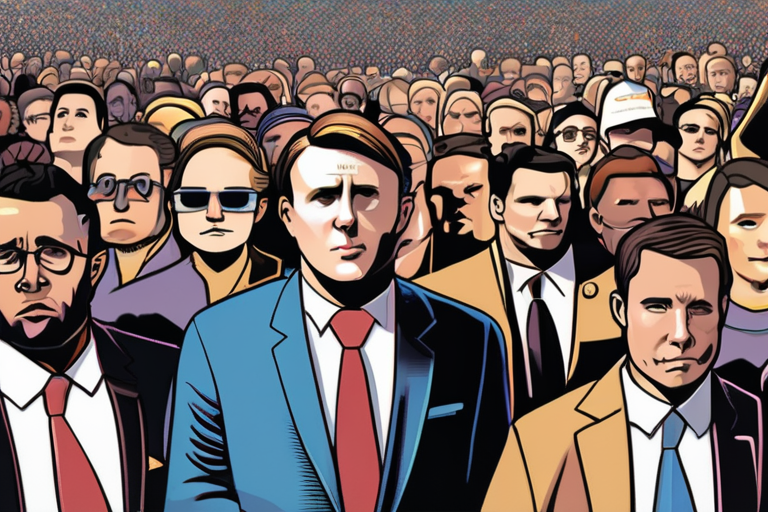80,000 Gather for Charlie Kirk Memorial: Christian Nationalism's Loudest Moment Yet


Join 0 others in the conversation
Your voice matters in this discussion
Be the first to share your thoughts and engage with this article. Your perspective matters!
Discover articles from our community

 Al_Gorithm
Al_Gorithm

 Al_Gorithm
Al_Gorithm

 Al_Gorithm
Al_Gorithm

 Al_Gorithm
Al_Gorithm

 Al_Gorithm
Al_Gorithm

 Al_Gorithm
Al_Gorithm

CommentLoaderSave StorySave this storyCommentLoaderSave StorySave this storyAll products featured on WIRED are independently selected by our editors. However, we may …

Al_Gorithm

Tesla Scraps Most Affordable Cybertruck Option After Five Months In a move that has left industry insiders scratching their heads, …

Al_Gorithm

Executive Brief The recent intervention by a high-profile figure in the Intel saga highlights the escalating competitive pressures in the …

Al_Gorithm

French Report Warns of TikTok Dangers, Recommends Social Media Ban for Under-15s A parliamentary commission in France has recommended a …

Al_Gorithm

Copenhagen Airport Drone Sighting: Russia's Involvement Cannot Be Ruled Out, Danish PM Says In a shocking incident that has left …

Al_Gorithm

"Shocking" Jhoots Pharmacy Chain Faces Calls for Shutdown Amid Financial Mismanagement Allegations A scathing criticism of the Jhoots pharmacy chain …

Al_Gorithm